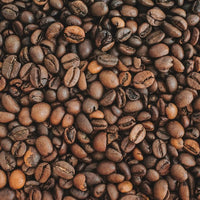I had already tried, and failed, to quit drinking alcohol a few times before I implemented a tactic that finally worked. The vicious cycle went something like this: Have a few drinks, feel lethargic the next morning (often with a stuffy nose), tweak out on coffee, profess to the world that I was going to quit drinking, then, that evening, another cold one would magically appear in my hand. I never felt like I had a problem with drinking to the point that I needed to seek help, but it made me feel like a computer with bad internet: everything still worked, just more sluggishly.
Then, the pandemic hit. I knew that drinking screwed with my immunity and I committed to quit for one whole year. Only this time, I had a plan.
Enter Tim Ferriss. The best-selling author and podcaster interviews top performers and dissects the habits and routines that make them so damn good at their craft. In one episode of his podcast, Ferriss references a method to break bad habits through loss aversion. According to behavioral economics, carrots aren’t as effective as sticks. The pain of losing is, psychologically, about twice as powerful as the pleasure of gaining. Most people fail at New Year’s resolutions because there are no consequences for failure.
Ferriss recommends a website called Stickk, which allows you to set a goal, then put up a financial stake that sends your money to an "anti-charity" if you don't complete the goal. (An example of an anti-charity might be an opposing political party.) Stickk also lets you set up a coach to monitor your progress. I didn’t end up using Stickk to set my goal of One Year, No Beer, but it’s a good resource to know about regardless. Instead, I wrote a check for $1,000, handed it to a close friend, and told him to mail the check to ALEC if I broke my commitment.
ALEC is my anti-charity. The acronym stands for the American Legislative Exchange Council and, to me, they are evil incarnate. They are a pay-to-play corporate legislative bill mill and their members include the single-use plastics industry and private prisons. These corporations pay a membership fee to be part of ALEC, and in return, ALEC writes bills that benefit them. ALEC then hands the bills off to politicians to enact and, because many politicians today are basically sponsored by corporations through campaign contributions, often they are happy to enact the bills, no questions asked. Among other draconian measures, ALEC has ushered in laws including some that make plastic bag bans illegal. These laws currently prohibit 70 million Americans in 10 states from enacting bag ordinances to reduce plastic waste in their communities.
ALEC has also pioneered some of the toughest sentencing laws on the books today, like mandatory minimums for non-violent drug offenders, “three strikes” laws, and “truth in sentencing” laws, which is a boon to one of its major corporate sponsors, Geo Group, a private prison corporation that makes more money the more people are incarcerated.
 Read more: How to Interview Your Dad (and Why You Should Do it Now)
Read more: How to Interview Your Dad (and Why You Should Do it Now)
Obviously, I failed at One Year, No Beer.
Shortly after I wrote the check to ALEC, I was offered an ice-cold Coors Light at a friend’s BBQ. It was in a six pack, and the plastic rings shackled each beer to one another like chains around prisoners’ necks. Chill vapor drifted downward off the cans like a melting iceberg. I imagined each sip eroding democracy, ounce by ounce. Politely, I declined and opted for a LaCroix instead. Now, 10 months later, I’m still alcohol-free.
I’ve since implemented the anti-charity method into other aspects of my life, as well. After watching the terrifying Netflix documentary The Social Dilemma, I committed to curbing my time on social media. So, I wrote an additional $500 check to ALEC, gave it to my friend, and instructed him to cash it if I checked Instagram on any day other than weekends. A month into this experiment, I am blown away by the amount of time I now have at my disposal that was once wasted on Instagram. It’s not hyperbole to say that it feels like I’ve woken up from a multi-year hypnosis, one that made me feel less focused and more anxious. And since disciplining my social media use, I have seen a noticeable improvement in my ability to sit down for long stints and write.
Kyle Thiermann is MUD\WTR's Head of Editorial and host of The Kyle Thiermann Show podcast.
Header photo by Olga DeLawrence via Unsplash.
Read more: Stop Comparison from Stealing Your Joy
Read more: Charles Eisenstein on the Paradox of Busy
Read more: World War Zzz: Trying the Advice of Sleep Experts



